Question And Answer
Publications
Articles, publications, books, tools and multimedia features from the U.S. Institute of Peace provide the latest news, analysis, research findings, practitioner guides and reports, all related to the conflict zones and issues that are at the center of the Institute’s work to prevent and reduce violent conflict.
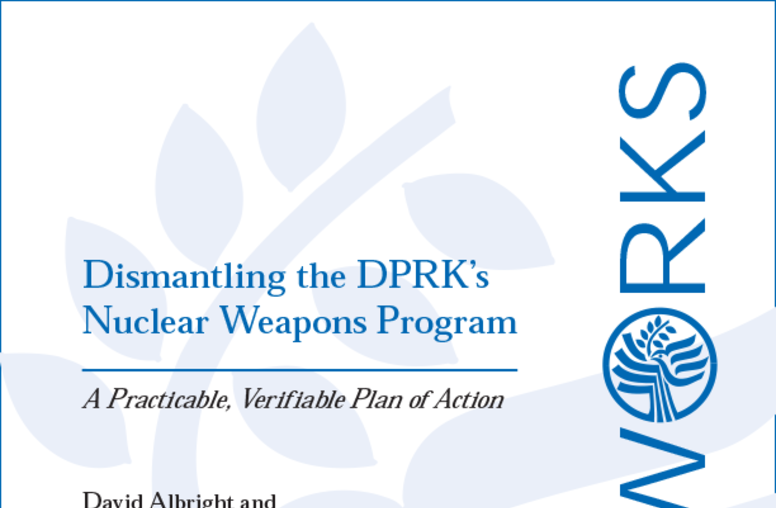
Dismantling the DPRK's Nuclear Weapons Program: A Practicable, Verifiable Plan of Action
Verified dismantlement of the nuclear weapons program of the Democratic People's Republic of Korea (DPRK) can be accomplished successfully. Although difficulties abound in reaching an agreement with the DPRK to achieve this goal, the methods and steps involved in the dismantlement process are well understood.
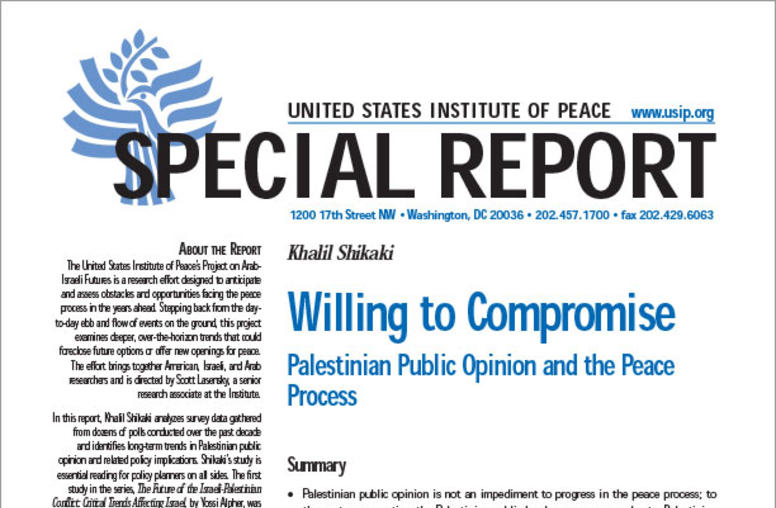
Willing to Compromise: Palestinian Public Opinion and the Peace Process
In this report, Khalil Shikaki analyzes survey data gathered from dozens of polls conducted over the past decade and identifies long-term trends in Palestinian public opinion and related policy implications.
Strategies for Peace in the Niger Delta
This USIPeace Briefing recaps a recent public event on the peacemaking strategies being pursued in the Niger Delta region of Nigeria.
Peace Agreements: Angola
Memorando de Entendimento Complementar ao Protocolo de Lusaka para a Cessção das Hostilidades e Resolução das Demais Questões Militares Pendentes nos Termos do Protocolo de Lusaka in Portuguese (04-04-2002) | 2.06MB Posted by USIP Library on: April 18, 2002 Source Name: File e-mailed from the U.S. Department of State, Washington, D.C. Date e-mailed: PDF file e-mailed on April 17, 2002. Lusaka Protocol (11-15-1994) Posted by USIP Library on: November 20, 1998 Source Name: Embassy of t...
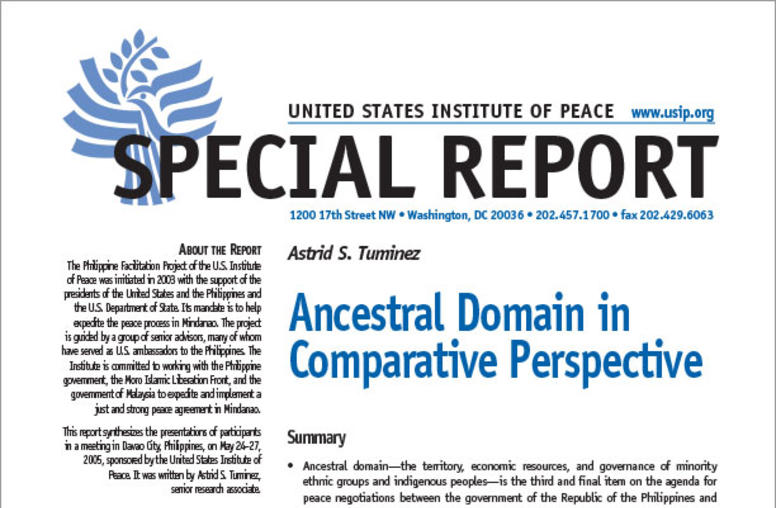
Ancestral Domain in Comparative Perspective
Summary Ancestral domain—the territory, economic resources, and governance of minority ethnic groups and indigenous peoples—is the third and final item on the agenda for peace negotiations between the government of the Republic of the Philippines and the Moro Islamic Liberation Front. The experiences of other minorities elsewhere in the world can be instructive in formulating a stable and peaceful accommodation that satisfies both parties.
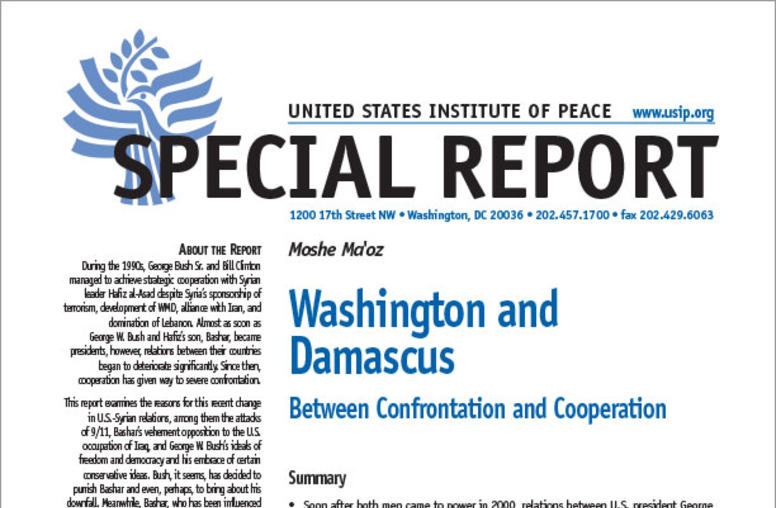
Washington and Damascus: Between Confrontation and Cooperation
Summary Soon after both men came to power in 2000, relations between U.S. president George Bush and Syria's president Bashar al-Asad began to deteriorate significantly. Since the Iraq war of 2003, Washington and Damascus have been on a collision course. Washington has resented the indirect assistance provided by Syria to Saddam's regime and to his loyalists, both before and after the U.S. occupation of Iraq.
Net Diplomacy III: 2015 and Beyond
Introduction As the Communist Revolution ended with the fall of the Berlin Wall in 1989, the Information Revolution reached the tipping point as corporations embraced the new technologies. The U.S. Department of State, while marking the end of the Cold War, continued to be guided by practices more fitting to an earlier age. Indeed, decision making has become more centralized, access more restricted, and information flow more inhibited. This state of affairs has been documented by severa...
The United States and Pakistan: Navigating a Complex Relationship
Christine Fair testified on June 30, 2005, before the U.S. Commission on International Religious Freedom on “The United States and Pakistan: Navigating a Complex Relationship." She discussed ideas for future U.S. policy for Pakistan and suggests that the U.S. maintain a strategic focus on Pakistan, beyond that country's willingness and ability to cooperate in the U.S.-led War on Terrorism.

Political Islam in Sub-Saharan Africa: The Need for a New Research and Diplomatic Agenda
Summary An understanding of the multifaceted nature of political Islam on the African subcontinent is a precondition for the formulation of an effective U.S. policy toward the region. Such a formulation would place political Islam in a historical and contemporary context. In East Africa, discrimination against Muslims—which began in colonial mission schools and continued in education and employment following independence—played an important role in the development of political Islam...
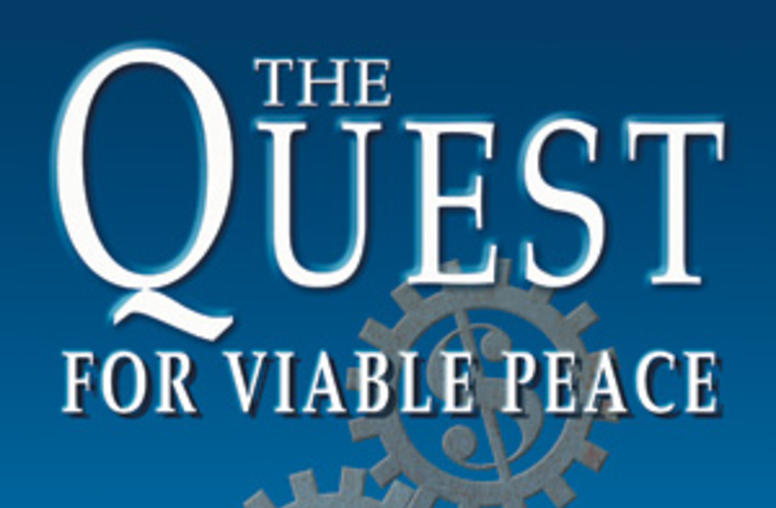
The Quest for Viable Peace
As the editors of this groundbreaking volume explain, viable peace is achieved when the capacity of domestic institutions to resolve disputes peacefully overtakes the powerful motives and means for continued violent conflict.